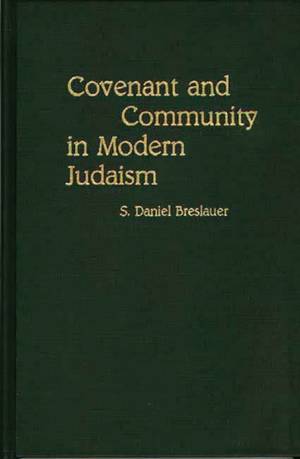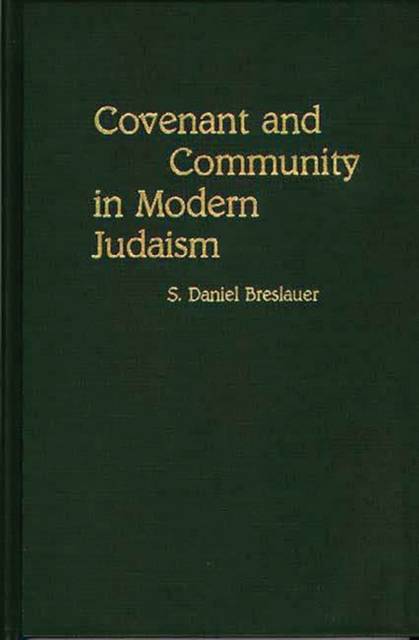
- Retrait gratuit dans votre magasin Club
- 7.000.000 titres dans notre catalogue
- Payer en toute sécurité
- Toujours un magasin près de chez vous
- Retrait gratuit dans votre magasin Club
- 7.000.0000 titres dans notre catalogue
- Payer en toute sécurité
- Toujours un magasin près de chez vous
Description
While scholars agree on the continuing importance of biblical covenant as a foundation of Judaism, they often disagree in their perception of the meaning and significance of this concept in a modern context. Breslauer addresses the disputed issues in a thorough examination of the debate itself, together with the biblical data and theological interpretations that support covenantal religion. Searching for new definitions of covenant, he suggests ways in which covenantal images offer positive and realistic answers to the problems that modern society poses for the practicing Jew.
Beginning with an explanation of the basic elements of covenantal Judaism, the author explores the problems raised by that paradigm, particularly as set forth in the work of Richard Rubenstein. Themes considered in the chapters that follow include the problem of being a Jew in contemporary society, the nature of human freedom, and the implications of covenantal religion for both community and personal identity. The discussion draws on major Judaic sources, including Hasidic works, Talmudic stories, and the Bible, as well as such contemporary thinkers as Martin Buber, Jacob Agus, and Will Herberg. The author concludes by drawing together the various themes and proposing a covenantal paradigm that affirms Jewish religion as a valid option in the modern world. A comprehensive annotated bibliography is supplied. Combining historical investigation with constructive analysis of present-day issues, this book will be of interest to both scholars and general readers concerned with contemporary Judaism.Spécifications
Parties prenantes
- Auteur(s) :
- Editeur:
Contenu
- Nombre de pages :
- 142
- Langue:
- Anglais
- Collection :
Caractéristiques
- EAN:
- 9780313266058
- Date de parution :
- 13-03-89
- Format:
- Livre relié
- Format numérique:
- Genaaid
- Dimensions :
- 140 mm x 216 mm
- Poids :
- 331 g

Les avis
Nous publions uniquement les avis qui respectent les conditions requises. Consultez nos conditions pour les avis.






